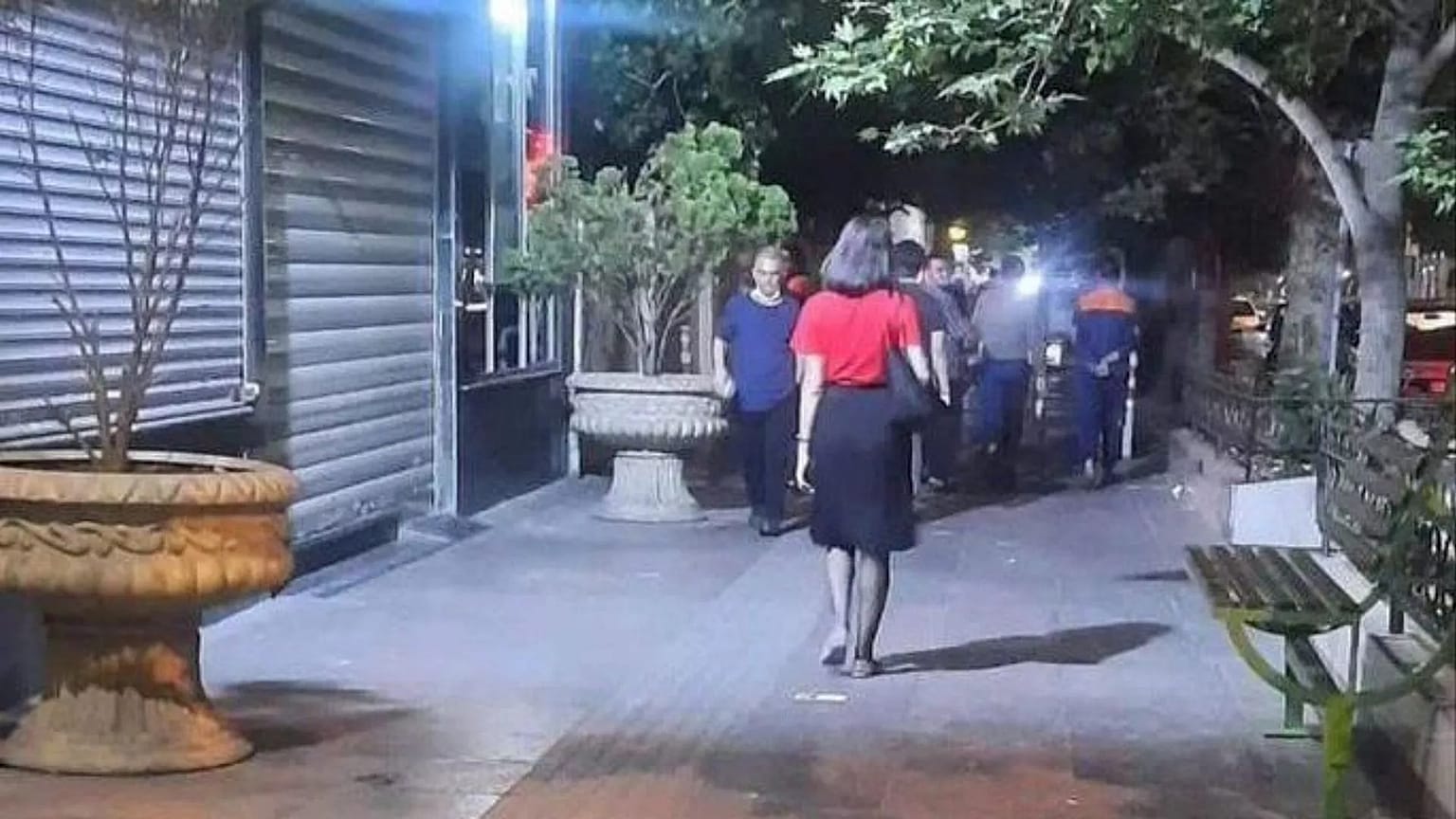The flogging of an Iranian woman who refused to wear the mandatory hijab has sparked widespread horror and condemnation.
Iranian authorities carried out the sentence against Roya Heshmati last Wednesday, prompting a torrent of outrage on social media.
 ADVERTISEMENT
ADVERTISEMENT
 ADVERTISEMENT
ADVERTISEMENT
Mazyar Tataei, Heshmati's lawyer, told local newspaper Shargh that his client was detained at her home in April by so-called morality police, who confiscated her mobile phone and laptop and placed her in detention for 11 days.
He added that initially, Heshmati was sentenced to 13 years and nine months in prison, a 112,500,000 rials fine and 148 lashes, but a review of the verdict brought the penalty down to 12,500,000 rials and 74 lashes.
Heshmati shared the story of her sentence on Instagram, prompting a flood of reactions.
The 23-year-old said that she removed her headscarf upon arriving at court to receive her sentence, throwing aside another that a group of female officers forcibly placed on her head.
In a harrowing story, she said she was eventually handcuffed and forced to wear a headscarf, shackled to a bed in a room that resembled a "gruesome" medieval torture chamber and whipped on her shoulders, back, waist, thighs, calves and buttocks.
Heshmati said she tried not to show pain during the ordeal, whispering the words "In the name of women, in the name of life, the clothes of slavery are torn, our black night will dawn, and all the whips will be axed...", while lashes rained down upon her and the shackles bruised her wrists.
She was subsequently taken before the judge while a female officer ensured her headscarf remained in place. She described her conversation with the judge on Instagram, claiming he told her she could leave the country if she wanted to live differently.
"This country belongs to everyone," Heshmati said. "Let the law do its job; we will continue our resistance."
She said that she removed her headscarf upon leaving court.
Mizan News Agency, affiliated with Iran's judiciary system, reported that Heshmati engaged in "behaviours outside the norm".
Additionally, it mentioned that she was "present in a very inappropriate condition on the streets of Tehran".
The term "inappropriate condition" likely refers to an image depicting her walking on the streets of Tehran without a headscarf, wearing a short-sleeved T-shirt and a long skirt.
Following the widespread reactions to the news, characterised as "violence and brutality by the authorities of the Islamic Republic", various figures expressed their condemnation, including artist and politician Zahra Rahnavard, who, along with her husband former Prime Minister Mir Hossein Mousavi, has been under house arrest for years since 2010.
Rahnavard addressed the authorities, stating, "You lash Roya Heshmati, but with her awakened conscience and resilience, she laughs at you. I am disgusted with your governance."
In response to the escalating reactions to her story, Roya Heshmati shared a new post on Instagram, expressing gratitude for the solidarity shown. She said that she did not expect her story to gain such attention.
Hashemi clarified that she shared the story privately on her page, emphasising that she is not a "public figure" and has no interest in changing that status.
As a result, she said she had decided to "voluntarily" deactivate her Facebook and Instagram accounts to avoid controversy.














